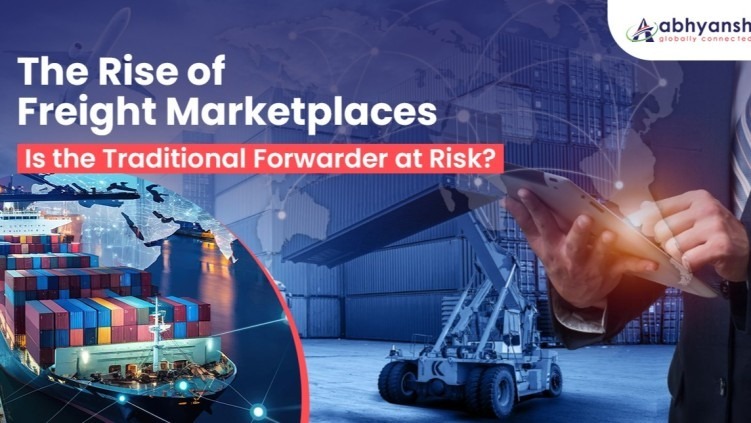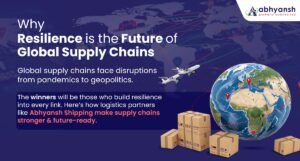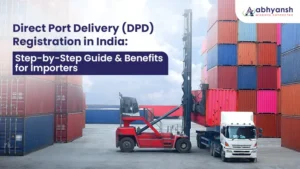The logistics and freight industry is witnessing a powerful shift: digital freight marketplaces are redefining how goods move across the world. As shippers increasingly demand speed, transparency, and smarter operations, these marketplaces are gaining momentum but does that mean the end of the traditional freight forwarder? Not quite. What we’re seeing is a transformation, not a total displacement.
Market Momentum & Projections
- The digital freight brokerage market is currently estimated at USD 7.51 billion (2025) and is projected to grow to USD 66.15 billion by 2034, at a CAGR of ~27.3%.
- In parallel, the digital freight matching segment is already massive. The global market was estimated at USD 47.2 billion in 2024 and is forecasted to reach ~USD 247.6 billion by 2030, growing at a 32% CAGR.
- Research by Arthur D. Little suggests that while full-scale disruption has yet to materialize, the evolution of digital business models in freight is accelerating, and legacy players must adapt or risk being sidelined.
These numbers aren’t just hype they show that digital freight platforms are rapidly becoming a meaningful player in global logistics.
What Digital Marketplaces Bring to the Table
Digital freight marketplaces offer several advantages over traditional models:
- Real-time visibility & transparency: Shippers, carriers, and forwarders gain access to live rates.
- Automated matching & optimization: Higher efficiency, reduced manual overhead, smarter routing.
- Reduced transaction costs: Marketplaces lower friction in quoting, negotiation, and documentation.
- Scalability and agility: The marketplace model enables more flexible management of fluctuations in demand.
But, and this is key, these strengths don’t automatically eclipse traditional forwarders. The role just evolves.
Why Forwarders Still Matter (And Must Adapt)
When asked whether AI or digital systems pose a threat to forwarders, Anshika made a clear and powerful argument: “AI is an enabler, not a replacement.” Here’s why that view holds:
- Complex problem-solving need humans: Logistics is full of exceptions regulation changes, unexpected delays, customs disputes. You need people on the ground to navigate ambiguity.
- Customer relationships & trust: Forwarders have built long-term trust, domain expertise, and network relationships intangibles that algorithms cannot replicate overnight.
- Value-added services: Forwarders can evolve into advisors handling customs compliance, consulting, supply chain design, sustainability, and multimodal integration.
- Platform partnerships: Smart forwarders can integrate with or embed marketplace functions rather than compete outright.
In other words, forwarders are not going away but their core value proposition must shift from pure brokering to orchestration, insight, and execution.
Strategic Imperatives for Forwarders
To thrive in this landscape, forwarders should:
- Embrace digital platforms: Whether through partnerships or internal development, adopt tools that enhance quoting, tracking, and analytics.
- Focus on hybrid models: Combine digital efficiency with human intervention at critical touchpoints.
- Offer niche specialization: Focus on verticals, geographies, or complex services (e.g. cold chain, hazardous goods) where expertise matters.
- Invest in AI + data analytics: Use predictive models, demand forecasting, and digital twins to stay ahead.
- Build resilience & flexibility: In turbulent times, the ability to respond quickly becomes a key differentiator.
Final Thoughts
Freight marketplaces are not a death sentence for forwarders if anything, they’re the catalyst pushing the industry forward. The race is no longer about being the biggest forwarder it’s about being the smartest, most responsive, and customer-centric logistics partner in the evolving digital ecosystem.
Abhyansh Shipping‘s perspective aligns with this: AI enhances what we do, but it doesn’t replace the human instincts, judgment, and relationships that make logistics operations truly resilient.






